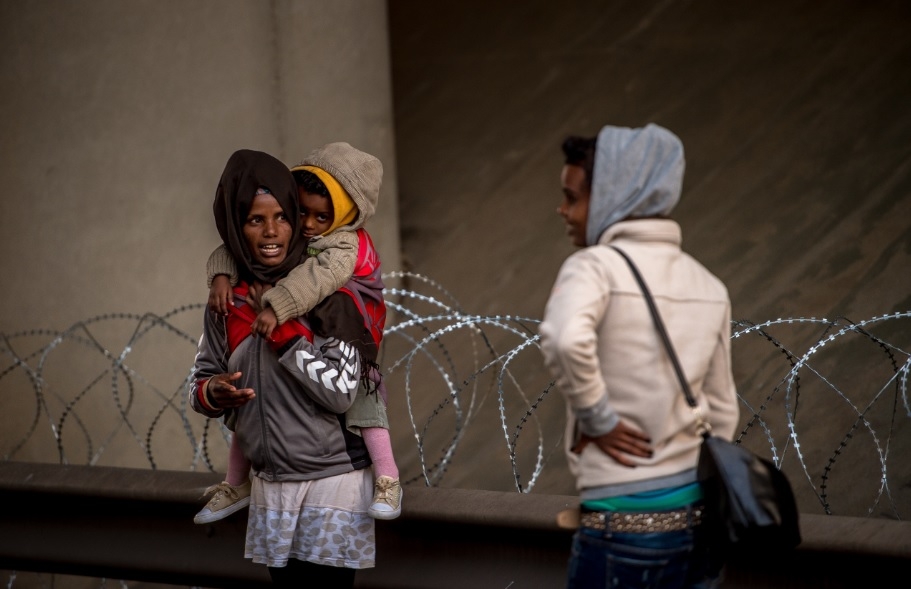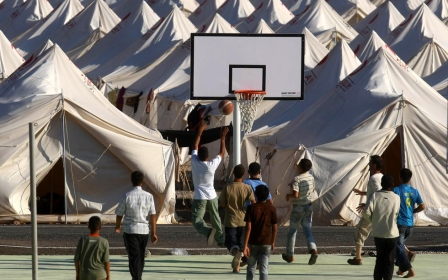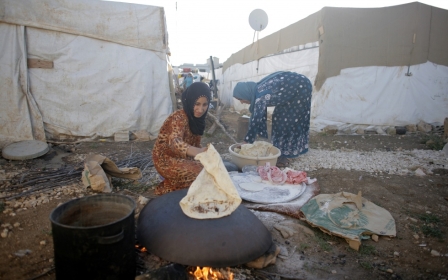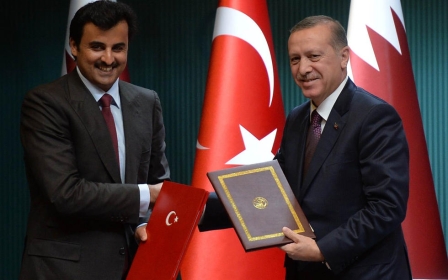Chaos in Calais: What Britain could learn from the Middle East

For those who may be unaware, Calais has for the last week played host to nightly scenes of disorder, initially caused by rioting French ferry workers seeking better pay and work conditions. Taking advantage of the growing confusion and weakening security, up to 3,000 refugees from Syria, Eritrea, Afghanistan and others have tried to break through fences and police barricades to seek refuge in the UK via the channel tunnel.
Desperate migrants have admitted to risking their lives in pursuit of sanctuary in the UK, with many reportedly jumping onto moving trains and trucks in a bid to reach Britain’s shores. Despite the danger and overwhelming chance of failure, migrants interviewed by European news agencies claim that they will continue to try until they succeed. Testimonies like these should indicate the hopelessness and desperation of refugees in Europe, an unenviable and pitiable position for someone to find themselves in.
However, after reading many of the emotionally charged headlines plastered all over British newspapers over the last week, one can be forgiven for thinking that outright war had been declared on the UK. A panicked Daily Mail article called for the British army to intervene in Calais and for the introduction of harsher laws that would send refugees home “without enjoying a single day of freedom in the UK”.
Another recent article published by the Daily Express similarly claimed that there was “an increased feeling that the country is under siege”. Even the highest reaches of the British leadership paid lip service to the national feelings of despair and fear, with Prime Minister David Cameron describing the refugee group as a “swarm of people”.
To use such evocative language to describe a group of a few thousand people may seem quaint or even offensive to the Arab countries that shelter a million or more individuals fleeing conflicts in Syria or Iraq. Lebanon (a country roughly the size of metropolitan London) has more than a million registered Syrian refugees within its borders. This staggering figure means that one in five people currently living in Lebanon is a refugee.
Jordan also has a remarkable record of assisting asylum seekers and refugees, hosting millions of individuals fleeing conflict throughout its short history. Although hosting refugees undoubtedly puts pressure on the nation’s resources and infrastructure, the Jordanian populace and government are welcoming, gracious, and hardworking in their bid to do the right thing.
In its short history, the Jordanian population has more than doubled as a result of its stability and consequent hosting of refugee populations. The effect of refugees on Jordan’s labour market, services and infrastructure have sometimes been difficult to bear and adapt to, but the state has managed to benefit from the experience and skills that refugees can offer to an economy over time.
Turkey is often described in the Western media as a transit point for refugees heading into Europe, a description that denies the hugely important role the country plays itself. Turkey now hosts around 2 million refugees in total (the third largest population in the world behind Pakistan and Jordan) and the nation goes to great lengths to provide for them properly, such as meeting the overwhelming challenge of educating a huge population of non-Turkish speaking children.
One will note that the vital role played by countries like Jordan, Lebanon and Turkey is not often discussed in the UK’s current media panic. A recent article featured on the Huffington Post felt drew attention to the role played by Syria’s neighbours, as if their involvement should come as a surprise to British readers.
The same article also highlights the fact that the 3,000 refugees as Calais represents only a tiny proportion of the total number seeking sanctuary across Europe; almost 175,000 in total have sought asylum across the continent this year, mostly in Germany and Sweden. In total, the UK has approved the asylum applications of just over 4,000 Syrians fleeing the conflict.
As the countries shouldering the real burden continue to be squeezed, options for new refugees are slimming. Lebanon announced in May 2015 that it cannot register any more refugees, citing the extraordinary strain on the country’s services. Jordan and Turkey are also experiencing financial difficulties and logistical issues whilst attempting to provide services and safety to nearly 3 million refugees between them.
With the UN predicting an ongoing refugee exodus throughout the year, can Syria’s overstretched neighbours continue to be expected to bear the costs with little thanks or financial support?
The UK is one of the richest countries in the world. Given the apparent intractability of the ongoing wars in Syria, the British government and media needs to do more to solve the problem at hand if it wishes to stop the “invasion” it faces at its shores.
Perhaps if the UK government was prepared to do more to financially support the countries doing the most to help refugees, it could continue to avoid taking any serious responsibility within its own borders.
If the British government fails to properly support the countries currently doing the lion’s share of the work, they should expect many more battles at Calais in the years ahead.
-John Miller is a consultant and researcher specialising in humanitarian and development issues. He currently lives and works in Amman and tweets from @JohnMiller864
The views expressed in this article belong to the author and do not necessarily reflect the editorial policy of Middle East Eye.
Photo: Migrants who managed to get past roadblocks set up by French gendarmes inside the Eurotunnel site walk to the boarding platform to attempt to reach Britain, in Coquelles near Calais, northern France, on 31 July 2015 (AFP).
New MEE newsletter: Jerusalem Dispatch
Sign up to get the latest insights and analysis on Israel-Palestine, alongside Turkey Unpacked and other MEE newsletters
Middle East Eye delivers independent and unrivalled coverage and analysis of the Middle East, North Africa and beyond. To learn more about republishing this content and the associated fees, please fill out this form. More about MEE can be found here.





